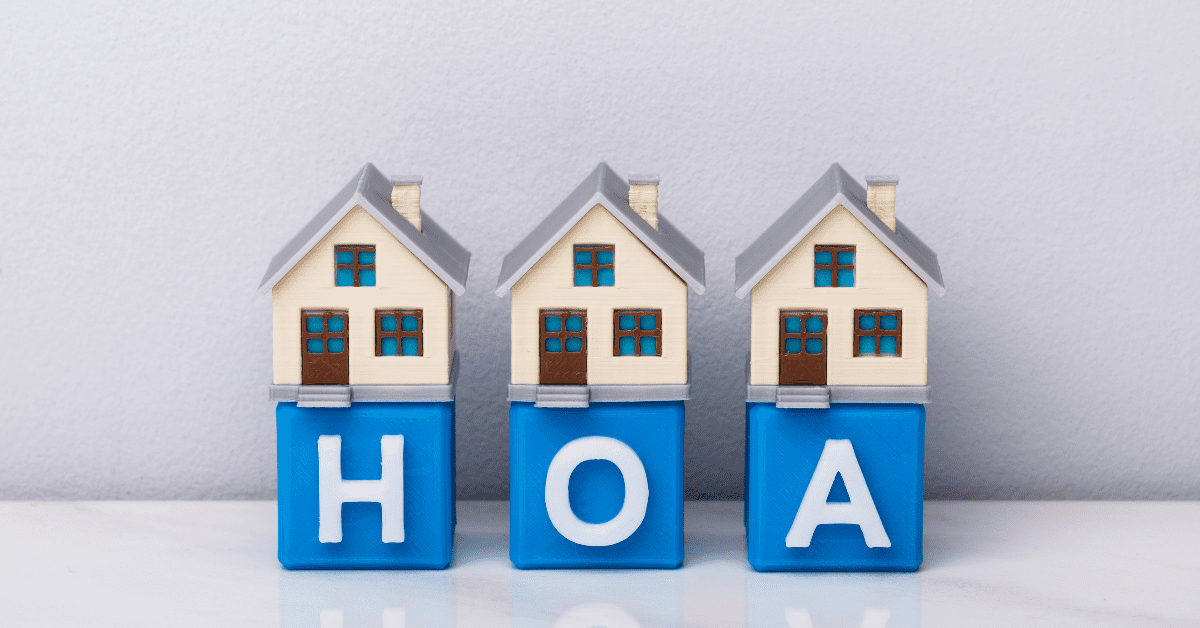Understanding Homeowner Association Responsibilities and Benefits
Homeowner Associations (HOAs) are an integral part of many American neighborhoods, shaping the character, amenities, and even property values of their communities. From quiet suburban neighborhoods to bustling city condominiums, homeowner associations play a crucial role in maintaining the quality of life and very identity of these communities.
Exploring the Role of Homeowner Associations
Miniature representation of a homeowner association
The concept of the Homeowner Association dates back to the late 1940s, with the emergence of the first planned community in Long Island, Levittown. Since then, HOAs have become a common fixture in the real estate landscape, with their presence steadily increasing from 49% of newly built homes in 2011 to 67% in 2021.
The reason for this popularity? A unique blend of community standards, shared amenities, and financial stability that HOAs offer.
Defining the Homeowner's Association
The key to understanding the role and appeal of HOAs lies in their very nature. An HOA, or Homeowner Association, is a private organization that is run by the residents of a neighborhood. Its main purpose is to set and enforce rules which keep the neighborhood looking uniform. This ensures that the neighborhood retains its unique aesthetic character and charm, something that is often lost in non-HOA neighborhoods.
HOAs also foster community and shared responsibility, beyond their focus on rules and aesthetics. They collect fees from members to finance the upkeep of common areas and maintenance of facilities, often referred to as monthly HOA fees. This collective fund allows for the maintenance of amenities that individual homeowners may not be able to afford on their own, such as swimming pools, parks, and fitness centers.
The Scope of HOA Responsibilities
The responsibilities of an HOA include:
Establishing and enforcing rules and regulations
Maintaining and repairing amenities
Collecting fees
Providing access and scheduling for members
An HOA is a multifaceted entity that goes beyond just maintaining the aesthetic appeal of the neighborhood. HOAs also help build community spirit among residents by coordinating events and social gatherings. They also safeguard property values by establishing regulations and guidelines to ensure all properties are kept up to a certain standard.
The Benefits of HOA Membership
Being a member of an HOA comes with numerous benefits. Beyond the tangible advantages — such as access to amenities and reduced maintenance responsibilities — it offers a community. HOA members have greater opportunities for socializing and getting to know other members. Furthermore, research shows that properties with an HOA were priced, on average, 4% higher than comparable properties without one.
In states like Florida, Colorado, and Vermont, more than 40% of the population resides in an HOA, enjoying the benefits of shared amenities and community standards.
The Financials Behind HOA Operations
Man calculating homeowner association fees
Despite the many benefits offered by HOAs, they also involve financial responsibilities. Understanding the financial aspects of HOAs, including the breakdown of average fees, special assessments, and reserve funds, is important for homeowners considering living in an HOA community, or those already part of one.
Average HOA Fees
HOA fees can differ significantly depending on the type of property and where it’s located. Amenities provided are also a factor. An individual HOA fee, or monthly fee, typically ranges from $50/month to $1000/month. These fees are used to cover the costs associated with maintaining shared spaces or amenities, such as a swimming pool, tennis court, or security gates. It’s important to be aware of the possibility of an increase in HOA fees, which can impact your monthly expenses.
Keep in mind, these fees do not include homeowners insurance payments, which are meant to cover possible damages to your home and personal belongings.
Understanding Special Assessments
Special assessments are fees levied by HOAs on homeowners to cover major, non-routine maintenance and other unforeseen costs. They are usually imposed when the reserve fund — which is used to cover such costs — is insufficient. While no homeowner likes the idea of having to pay an additional fee on top of their regular HOA fees, the possibility of a special assessment is something that should be considered when budgeting for homeownership.
The Reserve Fund: Planning for the Future
An HOA’s reserve fund is essentially a savings account to cover more costly repairs and replacements that may arise in the future. This fund is crucial for the financial health of the HOA, and it’s commonly recommended that it should make up at least 70% of the HOA’s annual budget.
The reserve fund covers unexpected expenses necessary for community maintenance and upgrades, like significant repairs or enhancements.
Navigating HOA Rules and Regulations
Graphic depicting rules and regulations for homeowner associations
Living in an HOA community requires compliance with the HOA’s specific rules and regulations. These rules, often referred to as CC&Rs (Covenants, Conditions, and Restrictions), are designed to maintain community standards and protect property values. Although these rules help maintain community harmony, they occasionally cause disagreements among homeowners.
The Importance of CC&Rs
CC&Rs serve as the rulebook for an HOA community. They provide a set of rules and guidelines that govern the actions of homeowners with respect to their homes and the community. These regulations serve as an effective roadmap to assist homeowners in understanding the ‘dos and don’ts’ of their neighborhood and are intended to maintain and increase property values in the area.
They cover a range of topics, such as:
architectural guidelines
pet restrictions
noise regulations
parking rules
rules regarding the use of common areas and amenities
Compliance and Enforcement
HOAs enforce compliance with its rules through fines or legal actions on homeowners who violate them. This enforcement is necessary to maintain the integrity of the community and ensure that all homeowners are adhering to the agreed-upon standards. While this might seem restrictive, it’s important to remember that these rules are in place to protect the quality of life for all residents and maintain property values.
Balancing Community Standards with Personal Freedom
Living in an HOA community means balancing community standards with personal freedom. While HOAs have rules to maintain a consistent neighborhood aesthetic and protect property values, they must also respect each homeowners’ individual freedoms within the boundaries of the community regulations. This balance is vital in creating a strong community where residents feel both a sense of belonging and individuality.
HOA Governance: Structure and Board Roles
Example of an HOA board meeting
Understanding HOA operations is a key aspect of being a knowledgeable resident. The structure of the HOA board, the roles of the board members, and the role of management companies in assisting HOA boards are all important components of an HOA’s operation.
Election and Composition of the HOA Board
The HOA board, typically made up of community homeowners, governs the HOA operations. The process for electing board members involves a voting process, with the specific details varying depending on the HOA’s bylaws and governing documents.
The board typically consists of four core members:
President
Vice President
Board Secretary
HOA Treasurer
These roles are responsible for managing the HOA and making decisions in the best interests of the community.
Duties of Board Members
HOA board members have a variety of responsibilities, including:
Overseeing the operations of the association
Making decisions
Setting and enforcing community regulations
Managing finances and budgeting
Ensuring adherence to governing documents
Preserving common areas
Each board member has a specific role, with the president leading meetings and setting the agenda, and the treasurer managing the finances and creating the annual budget.
The Role of the Management Company
A management company significantly assists HOA boards by taking on a variety of duties, including:
Supervising maintenance
Budgeting
Managing common areas and shared facilities
Sustaining financial records
Generating reports
Executing general accounting
By taking on these responsibilities, management companies allow the HOA board to focus on making strategic decisions for the benefit of the community.
The Impact of HOA Fees on Your Monthly Budget
Example of a monthly budget
Despite the numerous benefits of living in an HOA community, understanding the financial impact of HOA membership is important. HOA fees are a significant part of this equation, and considering how they impact your monthly budget is crucial for making informed financial decisions.
Factoring HOA Fees into Homeownership Costs
HOA fees are an essential part of homeownership costs, just like mortgage payments, property taxes, and homeowners insurance. These fees can make a big difference in your monthly budget, and it’s important to factor them in when purchasing a home in an HOA community. While they can be substantial, keep in mind that they cover a host of services and amenities that you might otherwise have to pay for separately, such as:
Landscaping and lawn maintenance
Trash and recycling services
Snow removal
Exterior maintenance and repairs
Community amenities like pools, gyms, and parks
Security services
Common area maintenance and upkeep
What Happens When You Pay HOA Fees?
When you pay your HOA fees, you’re not just handing over money to your association; you’re contributing to the overall well-being and value of your community. These fees are used to cover a range of costs, from the maintenance of shared spaces to the upkeep of amenities. Making your HOA payment on time ensures that these essential services continue to benefit all residents.
By paying your fees, you’re investing in your community and helping to keep it a desirable place to live.
Consequences of Not Paying HOA Fees
Failing to pay your HOA fees can have serious consequences. If fees remain unpaid for an extended period of time, the HOA may impose a lien on the property, take legal action, or even initiate foreclosure proceedings.
It’s crucial to understand the potential ramifications of non-payment and to keep up with your HOA payments to avoid these outcomes.
The Pros and Cons of Living in an HOA Community
Residing in an HOA community has its advantages and disadvantages for condo owners. While the benefits of shared amenities, community standards, and increased property values can be attractive, the associated fees and restrictions can be a source of concern for some homeowners.
Advantages: Amenities and Maintenance
One of the biggest benefits of living in an HOA community is access to shared amenities. These can include:
swimming pools
fitness centers
playgrounds
walking trails
In addition, HOAs often take care of maintenance tasks for common areas, reducing the workload for individual homeowners. This can be a significant advantage for those who don’t have time or prefer not to deal with the hassle of maintenance.
Drawbacks: Fees and Restrictions
While the benefits of living in an HOA community are plentiful, they do come at a cost. HOA fees can be a significant monthly expense, and it’s important to factor them into your budget when considering purchasing a property in an HOA community.
Additionally, the rules and regulations set by the HOA can sometimes feel restrictive, particularly when it comes to modifications to your property or the use of common areas.
How to Effectively Participate in Your HOA
Woman volunteering to join her HOA
Participating actively in your HOA offers a satisfying experience as it allows you to:
Influence your community’s management
Build relationships with your neighbors
Volunteer for a committee
Attend meetings and voice your opinions
There are numerous ways you can get involved and make a positive contribution to your HOA.
Joining the HOA Board or Committees
Becoming a member of the HOA board or a committee is an excellent way to participate in your community. Serving on the board or a committee allows you to have a direct influence on the decisions that affect your community. It’s also an opportunity to develop leadership skills and build relationships with your neighbors.
While serving on the board or a committee does require a time commitment, the rewards of making a positive impact on your community can make it well worthwhile.
Communicating with the HOA Board
Communicating effectively with your HOA board is key to resolving issues and making sure your opinions are considered. Whether you have a suggestion for improving the community or a concern about a recent decision, it’s important to communicate your thoughts clearly and respectfully.
Remember, the board members are your neighbors and are likely volunteering their time to serve the community. Approaching them with respect and understanding can go a long way toward fostering positive communication.
Dispute Resolution Within the HOA Framework
Disputes can occur in any community, including those with HOAs. However, most HOAs have established dispute resolution processes to handle these situations. Whether it’s a disagreement between neighbors or a conflict with the HOA board, understanding how these processes work can help you navigate any disputes that may arise in your community.
Wrapping Up
Understanding how Homeowner Associations operate and what they mean for you as a homeowner is essential when living in or considering an HOA community. From the benefits of shared amenities and community standards to the responsibilities of HOA fees and regulations, diving in to the intricacies of HOAs can help you make an informed decision about whether an HOA community is the right fit for you.
If you need help tackling the ins and outs of homeowner associations, don’t hesitate to get in touch. I’ve helped dozens of clients navigate their HOA and can do the same for you.






